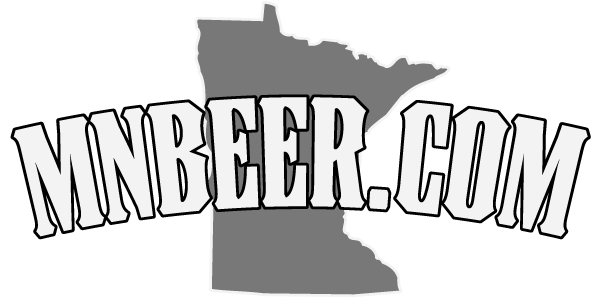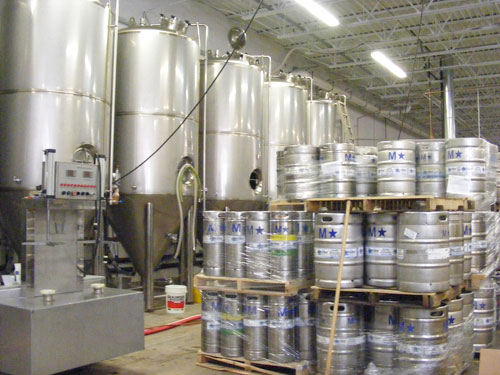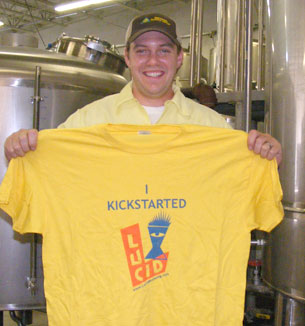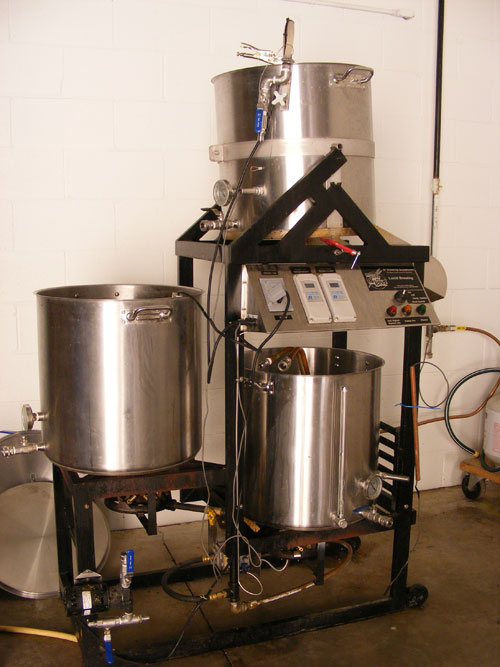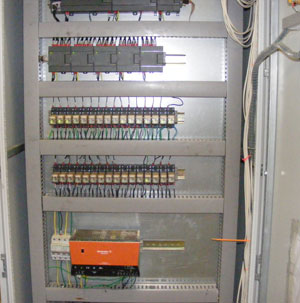Thanks to new contributor Danika Peterson for this one. Catch her on Twitter at @Danika_Peterson
Update: Blacklist Brewing Co. just completed a successful Kickstarter project a few days before deadline. Congrats guys.
Lucid Brewing was the first brewery in Minnesota to run a successful Kickstarter campaign. Last November, Lucid was able to raise $10,590 toward the expansion of the brewery and a community brewing space. Since then, two other breweries in Minnesota have run successful Kickstarter campaign: Bemidji Brewing, and Jack Pine Brewery.
It hasn’t always been that easy to raise money. As recently as last May, Steel Toe Brewing attempted an ambitious $35,000 Kickstarter fundraising drive. Their drive did not succeed. This means even though they took in $10,783 in pledges, they got nothing out of the fundraising, because Kickstarter is an all or nothing deal. Either you raise the money or you don’t. There is no in between. All pledges they received were refunded.
Lucid admits to taking a strategic position on fundraising by reviewing all of the successful brewery fundraising drives on the books, and taking ideas and points from each of them. Lucid Owner Jon Messier also says that at least one other Minnesota brewery seeking Kickstarter funds contacted him. Patrick from Jack Pine Brewery came to their Minnetonka brewery for a tour and a conversation while Jack Pine was still in the homebrew stage. Lucid says they were more than happy to share their knowledge and experience with an up-and-coming brewery.
Lucid already had a brewery and a business plan, so their Kickstarter fundraising was all about building a community brewing space where future breweries or the next great homebrewer could flourish.
Currently Badger Hill brews their beers under Lucid’s roof, but Messier says that he hopes they can encourage and mentor dozens more breweries in the future. “The goal of our Kickstarter was to build creative community around the brewing industry.”
“Our goal is to have three, four, five breweries in the building, and kind of create a creative atmosphere for brewers,” said Messier as he described their goal for their community space.
As a part of their community brewing vision, Lucid, Northern Brewer and others, is a part of the Iron Brewer Competition that is underway right now. Homebrewers and aspiring breweries have the chance to have their brews brewed by Lucid. Until August 9, go-getting brewers can fill out an application at www.ironbrewermn.com. And then by August 10, up to 24 potential brewers will be chosen for the competition. The winner of the entire competition will have 60 kegs of their beers distributed to local bars and restaurants, but perhaps more importantly be distinguished as “The Iron Brewer Minnesota.”
Even though Lucid broke incredible ground by being the first brewery in the state to be funded in such a way, they say that the money doesn’t go nearly as far as someone may think. They raised just over $10,000, but ended up spending about $4,000 on the printing and shipping or the rewards for their donors. Their rewards included t-shirts, pint glasses, stickers, the naming rights to one of their fermenters, the first run of growlers and more.
Even if rewards were not an issue, money in a brewery doesn’t go too far. This (photo on left) is Lucid’s upgraded electrical system. Jon pointed to about four of these one-inch squares when asked how far $10,000 really goes. Those electronics run just one tank. Based on the high costs of running a brewery, Messier doesn’t think that anyone will ever be able to raise enough money to completely fund a brewery. “You’d be hard pressed to raise $100,000 on Kickstarter for a brewery.”
But, even more than the money, Messier thinks that the greatest benefit to a successful Kickstarter driver is incredible community interest. “It’s great to build a loyal fan base, and some loyal customers.” But, Messier admits creating a business off of donations may be difficult, “I wouldn’t start a business based on results of Kickstarter.”
Right now, Blacklist Brewing is just days away for the conclusion of their Kickstarter drive. Their drive ends on August 10. What makes their fundraising drive different is not only the merger of brewing and art, but that once you reach a certain donation level, you can receive a minimum of six unique 22-ounce bottles, which are planned to come out of their brewery monthly. These beers may not be available in stores, allowing you to have a very rare beer in a very rare bottle.
As for right now, Kickstarter appears to have a moderate interest from breweries in the state, even if it may be for smaller projects. So, even if Kickstarter may not be fully funding anyone’s business model anytime soon, they can still provide both the brewer and the donor a significant benefit.
